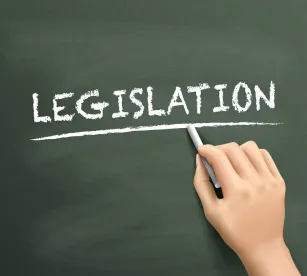Less than two months before New York’s Compassionate Care Act of 2014 was supposed to make medical marijuana available to qualified patients, Governor Andrew Cuomo has signed a measure (A. 7060, S. 5086) creating “an expedited pathway” to the drug for the seriously ill. The purpose of the measure, according to its legislative findings and intent, is to “establish an emergency program to provide appropriate medical marihuana for certain patients for whom delay in the patient’s certified medical use of marihuana poses a serious risk to the patient’s life or health,” because “emergency action is needed before the full medical marihuana program under [the 2014 CCA] is implemented, to protect the life and health of these patients.”
The law, signed November 11, authorizes special medical certifications for use of the drug where a patient’s serious condition is progressive and degenerative or delay in the patient’s certified medical use of marijuana poses a serious risk to the patient’s life or health. The State Health Department is tasked with preparing necessary forms and regulations containing expedited procedures for special certification. It may require an applicant to submit additional documentation establishing the clinical basis for the special certification. Expedited registration of registered organizations also is authorized, to speed up the availability of the drug for medical use. Applicants for registration who currently are producing or providing medical marijuana (or have a history of doing so) in compliance with the laws of another jurisdiction, among others, shall be given a preference.
Assemblyman Richard Gottfried (D-Manhattan), a principal sponsor of the bill, cited “glitches” in the State Health Department’s roll-out of the 2014 CCA that was causing delays in making the drug available, as justifying the measure. Gottfried said in a statement that the new law “is designed to get medicine to the neediest patients, including young children, as quickly as possible. It gives the Health Department flexibility to modify requirements of the current law and regulations to speed up production and distribution to patients with the most critical need. For the most seriously ill patients, even minor delays — a day, a week, a month — are life-changing.”
Under the 2014 CCA, five companies were licensed last summer to grow and sell medical marijuana. Although they appeared to be following the Health Department’s schedule for making the drug available under an 18-month timetable, some medical marijuana advocates thought the process was too slow.
The Governor, announcing his approval, reportedly said the new law would require the Health Department to register more organizations to produce the drug “as soon as practicable” and to waive “tight controls” of the 2014 CCA, although he did not elaborate.
Some lawmakers expressed reservations about the emergency measure. Sen. Diane Savino (D -Kings, Richmond), a sponsor of the 2014 CCA, had urged her colleagues to vote no, fearing the bill might trigger litigation putting implementation of the original law at risk. The Governor reportedly also cautioned that the new program should comport with 2013 guidelines established by the U.S. Justice Department (the so-called “Cole Memo”), tolerating as a matter of prosecutorial discretion state medical marijuana programs with sound regulatory systems, but prohibiting interstate commerce in the drug, as federal law still prohibits its use.




 />i
/>i

